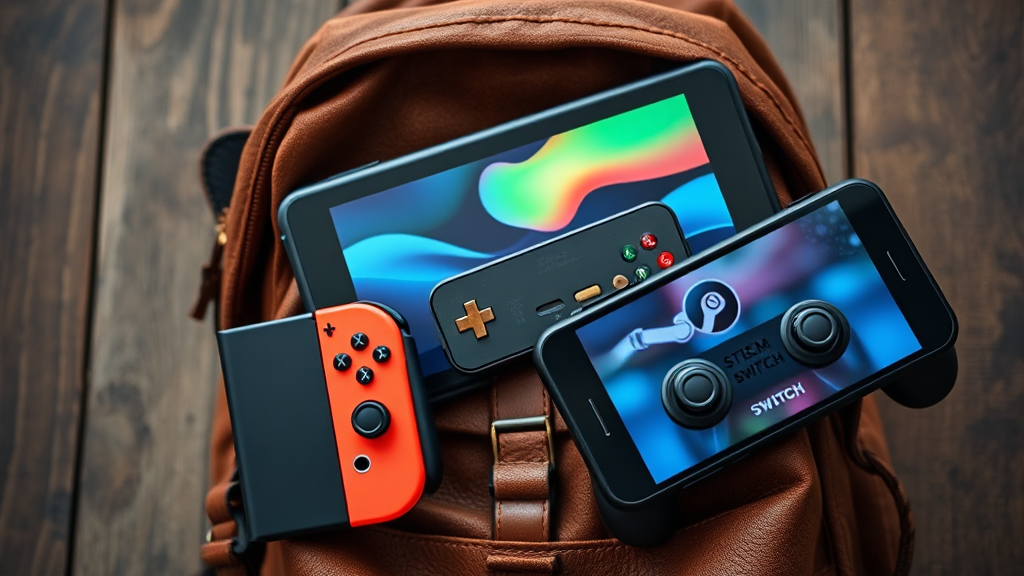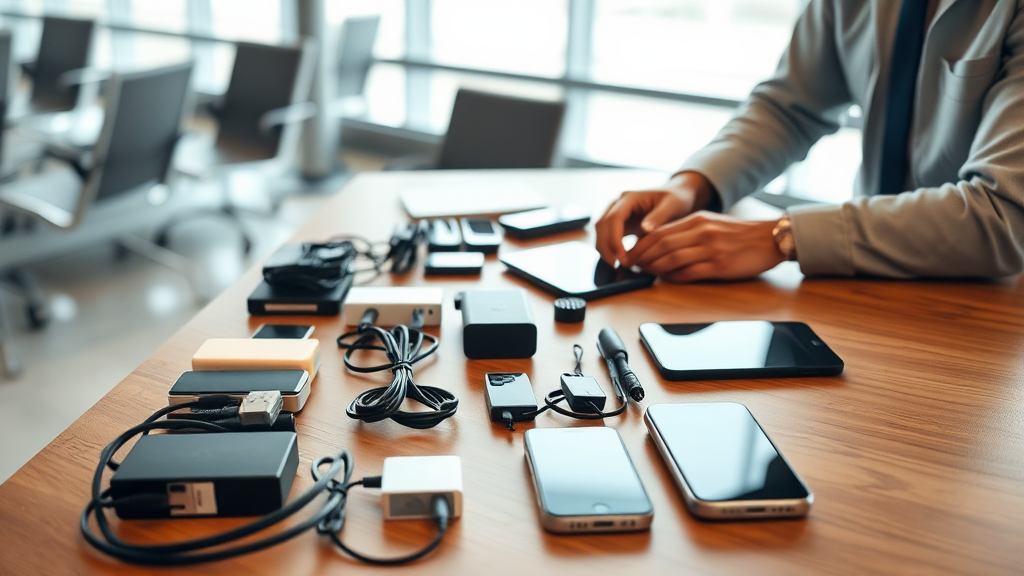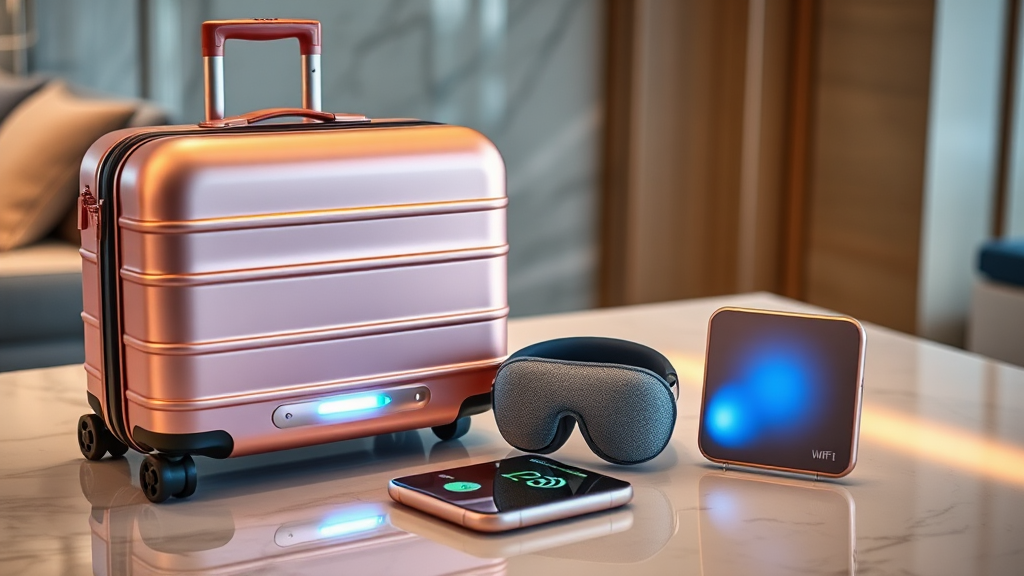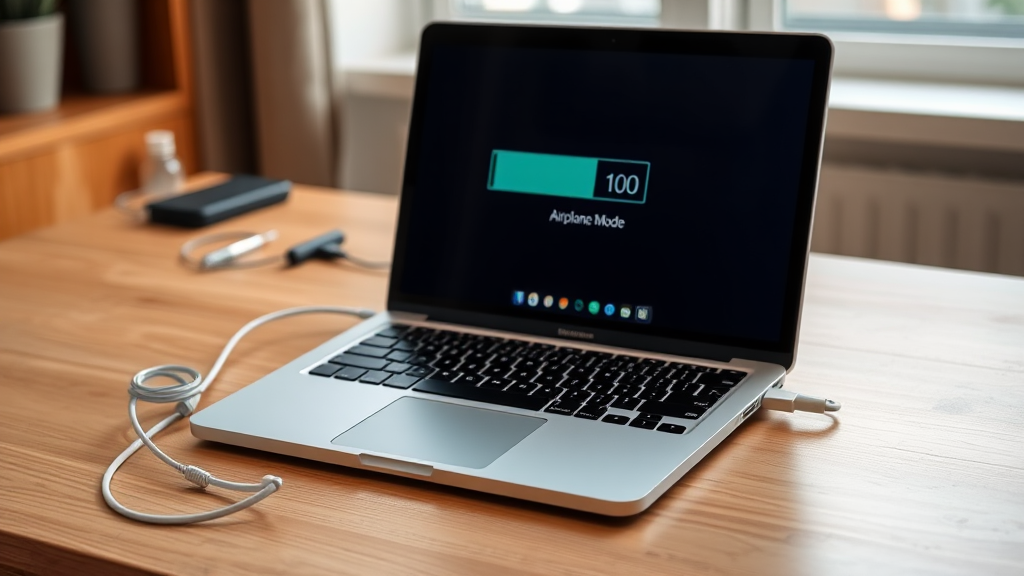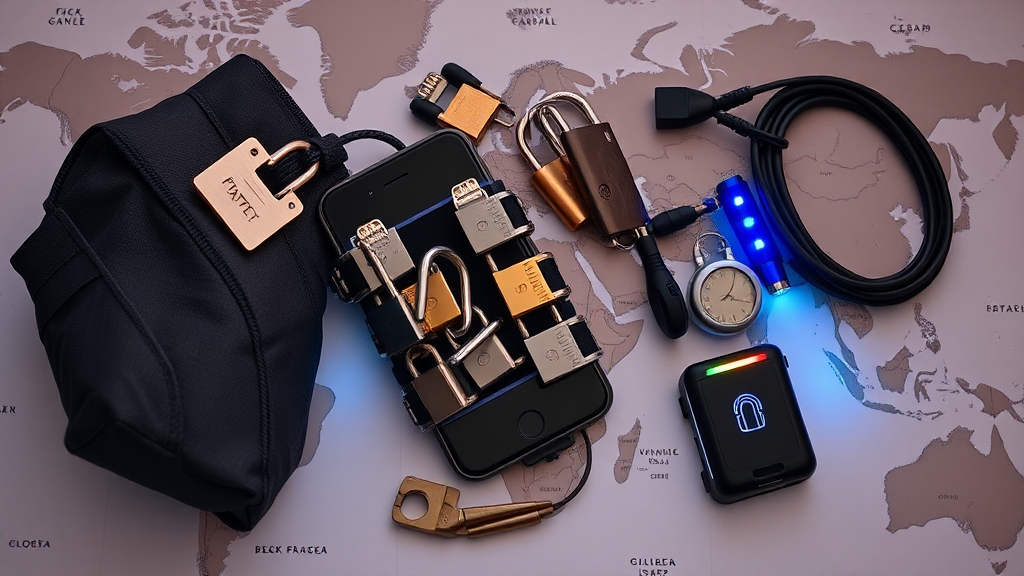Having the right laptop can make or break your sales career, as it has a very direct impact on your daily performance.
Sales professionals rely on their laptops for everything from virtual meetings to managing CRM systems, crafting presentations, and analyzing sales metrics.
Choosing the right laptop ensures efficiency, reliability, and seamless performance, whether you’re in the office, working remotely, or meeting clients on the go.
This guide breaks down 20 essential laptop features every sales professional needs, why they matter, and how to choose the right combination of hardware, software, and accessories.
1. Reliable Internet Connectivity
Why It’s Important:
Sales professionals depend on real-time communication, CRM tools, and cloud-based platforms. Interrupted connectivity can derail client meetings and data access. In today’s digital-first sales environment, uninterrupted internet connectivity is the backbone of productivity. Sales professionals rely heavily on cloud-based tools, video calls, and CRM platforms, all of which require a stable and fast internet connection. Whether working from a coffee shop or attending a conference, reliable connectivity ensures seamless communication and task execution.
Key Features to Look For:
- Wi-Fi 6 or Wi-Fi 6E: Faster speeds and lower latency, especially in crowded environments.
- Built-in 5G or 4G LTE: For mobile connectivity when Wi-Fi is unavailable.
Recommendations:
- Hardware: Ensure the laptop has a Wi-Fi 6E card to access the 6 GHz band, reducing interference and improving speeds.
- Accessories: Carry a USB-C hub with Ethernet for wired connections and a portable 4G/5G modem as a backup.
Backup Solutions:
While Wi-Fi is convenient, it can sometimes be unreliable. Investing in a portable USB-C 5G modem or a dual-band router can provide backup connectivity options. Additionally, carrying an Ethernet adapter allows access to wired connections, which are often more stable in offices or hotels.
Best Practices:
To maximize productivity, always download critical files for offline access before meetings. This ensures you have essential data even if internet connectivity falters. Additionally, familiarize yourself with your laptop’s network diagnostic tools to troubleshoot issues quickly.
2. Long Battery Life
Why It’s Important:
Sales professionals often work on the go. A short battery life can disrupt meetings or travel schedules. A laptop’s battery life is a critical factor for professionals who spend significant time traveling or meeting clients outside the office. A dead battery during a pitch or presentation can create a negative impression and disrupt workflows.
Key Features to Look For:
- Battery Capacity: At least 70Wh for extended use.
- Efficient Processors: Such as Intel U-series or Apple’s M1/M2 chips, known for balancing power and efficiency.
Recommendations:
- Hardware: Look for laptops with a battery life of at least 12 hours of real usage.
- Accessories: Carry a 65W USB-C power bank for emergencies.
Battery Efficiency Tips:
Quick-charging capabilities are a must for professionals in fast-paced environments. Modern laptops often support quick-charging, giving several hours of battery life in under 30 minutes of charging. Activating battery-saving settings and dimming screen brightness can further extend battery life during critical moments.
Travel Considerations:
Ensure the laptop’s battery adheres to airline regulations. Most airlines allow laptops with batteries under 100Wh in carry-on luggage. Compact travel chargers and multi-device power banks ensure uninterrupted productivity.
Best Practices:
Use power-saving settings and dim the screen when possible. Disable Bluetooth, Wi-Fi, or other unused peripherals to conserve energy. Always charge your laptop fully before starting a travel day or a long series of meetings.
3. Lightweight and Portable Design
Why It’s Important:
Constant travel between client sites and meetings makes portability a priority. Sales professionals often juggle multiple meetings in a day, making a lightweight and compact laptop crucial. Portability reduces strain during travel and enables productivity from virtually anywhere.
Key Features to Look For:
- Weight: Under 1.5 kg (3.3 lbs) for easy mobility.
- Screen Size: A 13-14 inch screen balances usability and portability.
Recommendations:
- Material and Build: Laptops made from magnesium alloy or carbon fiber are durable yet lightweight.
- Accessories: Invest in a slim laptop sleeve with water-resistant material for added protection.
Convertible Laptops:
2-in-1 hybrid laptops are an excellent choice for sales professionals. They function as both a laptop and a tablet, allowing you to quickly switch between creating presentations and sharing visuals during client meetings. These devices add versatility without increasing bulk.
Ergonomics on the Go:
Ensure your laptop is easy to use even in cramped spaces like airplanes or small conference rooms. Laptops with edge-to-edge keyboards and larger touchpads enhance comfort. A compact USB keyboard and ergonomic mouse can further improve the experience.
Best Practices:
Opt for backpacks or briefcases with dedicated laptop compartments. Test the portability of accessories like chargers, docks, and cables to ensure they fit well with your travel setup.
4. High-Quality Webcam and Audio
Why It’s Important:
Virtual meetings are a staple for sales professionals, and poor video/audio quality can harm credibility. In a world where remote interactions dominate, having a professional-grade setup ensures you leave a lasting impression.
Key Features to Look For:
- Webcam: A 1080p camera with good low-light performance is essential for clear visuals.
- Audio: Dual-array microphones with noise cancellation improve call clarity.
Recommendations:
- Hardware: Choose laptops with built-in 1080p webcams or consider external options like the Logitech C920.
- Accessories: A noise-canceling Bluetooth headset, such as the Bose QC45, ensures crisp audio input and output.
Enhancing Audio and Video:
External USB microphones and webcams often outperform built-in options. For example, the Blue Yeti microphone and Logitech BRIO webcam are excellent upgrades. These tools are particularly valuable for client pitches and team collaborations.
Lighting Considerations:
Position yourself with adequate lighting to improve video quality. Portable ring lights or desk lamps with adjustable brightness can dramatically enhance your video calls.
Best Practices:
Test video and audio settings before every call. Mute yourself when not speaking to reduce background noise. Keep your video frame centered and clutter-free for a professional look.
5. Customer Relationship Management (CRM) Software Compatibility
Why It’s Important:
CRM systems are the backbone of a sales professional’s workflow, enabling effective management of sales pipelines, client interactions, and performance tracking. Efficient CRM operations ensure seamless collaboration and data management, directly impacting sales outcomes.
Key Features to Look For:
- RAM: At least 16GB to handle CRM applications and multitasking efficiently.
- Storage: An NVMe SSD for faster data access and seamless operation of large CRM databases.
Recommendations:
- Hardware: Invest in laptops equipped with at least a 512GB NVMe SSD and sufficient RAM.
- Software: Opt for cloud-based CRM platforms like Salesforce or HubSpot for their accessibility and lightweight system requirements.
Cloud-Based vs. On-Premise CRMs:
Cloud-based CRMs offer the advantage of accessibility from any device with internet connectivity, reducing hardware strain on your laptop. On-premise systems, on the other hand, require powerful hardware but may be preferred by organizations prioritizing data security.
Integration with Other Tools:
Ensure your CRM integrates smoothly with email clients (e.g., Outlook, Gmail) and productivity suites (e.g., Google Workspace, Microsoft Office). This helps streamline workflows, from tracking leads to scheduling meetings.
Best Practices:
Regularly sync your CRM data to avoid loss of information. Use the offline functionality of CRM tools when internet access is unreliable. Customize dashboards and reports to display key metrics relevant to your role for quick decision-making.
6. Video Conferencing Support
Why It’s Important:
Video conferencing is critical for virtual client meetings, sales pitches, and internal team discussions. A laptop optimized for video conferencing ensures smooth communication, building trust and rapport with clients.
Key Features to Look For:
- Processor: A quad-core processor for handling video rendering without lag.
- Display: Full HD or higher for clear visuals during screen sharing.
Recommendations:
- Hardware: Look for laptops with Intel i5/i7 processors or Apple M1/M2 for reliable performance.
- Accessories: Use USB-C to HDMI adapters for external displays or projectors during calls.
Network Stability:
A stable internet connection is essential for high-quality video calls. Laptops with Wi-Fi 6 or Wi-Fi 6E provide reliable connectivity, while Ethernet ports or adapters offer a wired option for added stability.
Accessories to Enhance Calls:
Consider external webcams and microphones for superior video and audio quality. A wireless Bluetooth headset with ANC (Active Noise Cancellation) is invaluable for ensuring clear communication during calls in noisy environments.
Best Practices:
Test your video and audio setup before important meetings. Close unnecessary applications to free up system resources and ensure a smooth video conferencing experience. Always have a backup device or connection option available for critical calls.
7. Cloud Storage Access
Why It’s Important:
Cloud storage ensures secure access to files and data from any location, enabling seamless collaboration with clients and colleagues. It reduces dependency on local storage and provides a safeguard against data loss.
Key Features to Look For:
- Storage: A fast SSD (preferably 512GB or more) for local file caching and syncing.
- Cloud Platforms: Compatibility with Google Drive, OneDrive, or Dropbox for efficient storage and sharing.
Recommendations:
- Hardware: Choose laptops with high-speed NVMe SSDs to speed up file sync.
- Software: Use platforms with selective sync to optimize storage space.
File Security:
Enable two-factor authentication (2FA) for your cloud storage accounts to protect sensitive files. Many laptops now offer biometric authentication, such as fingerprint readers, to add another layer of security.
Offline Access:
Selective sync lets you download only the files you need, saving space while ensuring offline accessibility. This is particularly helpful when working in areas with unreliable internet connectivity.
Best Practices:
Organize cloud storage folders by project or client for quick access. Schedule regular backups to ensure critical data is safe and up to date. Share files using secure links with expiration dates to maintain control over access.
8. Document Creation and Editing Tools
Why It’s Important:
Creating and editing proposals, contracts, and presentations is a daily task for sales professionals. A laptop optimized for document handling ensures efficiency and high-quality outputs.
Key Features to Look For:
- Display: A Full HD or higher resolution screen for crisp text and visuals.
- Keyboard: Responsive keys with good travel and backlighting for comfortable typing.
Recommendations:
- Software: Microsoft Office 365 or Google Workspace for reliable document creation tools.
- Accessories: Use an external keyboard and mouse for long editing sessions to reduce strain.
Document Templates:
Pre-designed templates for frequently used documents like proposals and contracts save time and maintain consistency. Many platforms offer customizable templates to suit different client needs.
Cloud Integration:
Integration with cloud storage services ensures that documents are automatically saved and accessible from any device. Collaborative editing features in tools like Google Docs enhance teamwork.
Best Practices:
Organize frequently used templates in a dedicated folder for quick access. Use cloud-based tools to collaborate with teammates in real time. Keep a PDF version of key documents for sharing, as they preserve formatting across devices.
9. PDF Reader and Editor
Why It’s Important:
Contracts, agreements, and proposals often require precise annotations, edits, and signatures. A laptop with reliable PDF tools simplifies document handling and speeds up workflows.
Key Features to Look For:
- Touchscreen Support: For easy annotations and signatures using a stylus.
- Software: Robust PDF editing tools like Adobe Acrobat Pro or Foxit PhantomPDF.
Recommendations:
- Hardware: Opt for laptops with touchscreen displays, such as the Microsoft Surface series, for improved document handling.
- Accessories: A digital pen or stylus for precise annotations and signing.
Document Security:
Protect sensitive documents with password encryption and digital signatures. Advanced PDF tools also allow redaction of confidential information before sharing.
Offline PDF Editing:
Ensure your PDF software allows offline editing for instances where connectivity is unavailable. Tools like Adobe Acrobat Pro provide comprehensive offline functionality.
Best Practices:
Keep a library of frequently used contracts and templates as fillable PDFs for quicker turnaround. Use tagging and folder systems to organize documents by client or project for easy retrieval.
10. Screen Sharing Capabilities
Why It’s Important:
Screen sharing is an essential feature for delivering impactful presentations, demonstrating software, and collaborating with clients remotely. Seamless screen sharing ensures professional delivery and effective communication.
Key Features to Look For:
- Display Output Options: HDMI, USB-C with DisplayPort, or Thunderbolt 4 for connecting to external monitors or projectors.
- Compatibility: Ensure the laptop supports screen-sharing features of popular platforms like Zoom, Microsoft Teams, and Webex.
Recommendations:
- Hardware: Invest in laptops with Thunderbolt 4 for high-speed, high-resolution external display support.
- Accessories: Keep USB-C to HDMI/VGA adapters handy for different display setups.
Portable Monitors:
For professionals on the go, portable monitors powered via USB-C offer additional screen space for multitasking or presentations. They are lightweight, compact, and easy to set up.
External Accessories for Presentations:
A wireless presentation clicker allows smooth slide navigation during pitches, and laser pointers help emphasize key points. For frequent presenters, docking stations can simplify connecting to multiple screens or peripherals.
Best Practices:
Test your screen-sharing setup before important meetings. Close unnecessary tabs and applications to avoid distractions or accidental sharing of irrelevant content. Optimize your display resolution for clear visuals.
11. Virtual Private Network (VPN) Access
Why It’s Important:
A VPN ensures secure access to sensitive company and client data, especially when working remotely or using public Wi-Fi. It encrypts internet traffic, safeguarding critical sales information from potential breaches.
Key Features to Look For:
- Hardware Security: TPM 2.0 for encryption and compatibility with VPN software.
- VPN Compatibility: Ensure the laptop works with enterprise-grade VPN solutions like Cisco AnyConnect or NordVPN Teams.
Recommendations:
- Hardware: Choose laptops with biometric authentication (fingerprint or facial recognition) for added security.
- Software: Install reliable VPN software and configure it for auto-connect on untrusted networks.
Split Tunneling:
Many VPNs offer split tunneling, which allows you to route critical business applications through the VPN while general browsing remains on the regular network. This improves speed and efficiency.
Offline Work Considerations:
For professionals frequently in areas with limited connectivity, download necessary files in advance. Pair VPN access with secure cloud storage for uninterrupted access to critical resources.
Best Practices:
Always use VPNs when accessing CRM systems or sharing confidential documents. Regularly update your VPN software and review access logs for unusual activity.
12. Calendar Management Tools
Why It’s Important:
Scheduling and managing appointments is vital for staying organized and maintaining productivity. A laptop that integrates with advanced calendar tools simplifies meeting management and task planning.
Key Features to Look For:
- Cross-Platform Sync: Integration with mobile and desktop platforms for easy access.
- CRM Integration: Direct syncing with CRM tools for automated scheduling and follow-ups.
Recommendations:
- Software: Use Google Calendar or Microsoft Outlook for their robust features and compatibility with third-party tools.
- Hardware: Opt for laptops with touchscreen displays to quickly navigate and update calendar entries.
Automation Features:
Modern calendar apps suggest optimal meeting times based on availability and time zones. These tools are particularly helpful for international sales professionals managing global clients.
Notifications and Reminders:
Enable notifications for high-priority tasks and meetings. Desktop widgets can display schedules at a glance, reducing the need to switch between applications.
Best Practices:
Block specific times for tasks like proposal preparation and follow-ups to avoid overscheduling. Use color-coded categories for better visibility and organization.
13. Note-Taking Applications
Why It’s Important:
Sales professionals often need to take quick notes during client meetings, brainstorming sessions, or calls. A reliable note-taking setup ensures no critical detail is missed.
Key Features to Look For:
- Touchscreen and Stylus Support: Enables handwritten notes and sketches for added flexibility.
- Cloud Sync: Ensures access to notes from any device.
Recommendations:
- Software: Use tools like Microsoft OneNote, Evernote, or Notion for their organizational and search capabilities.
- Hardware: Laptops with convertible designs (like the Lenovo Yoga or Microsoft Surface) are ideal for seamless note-taking.
Voice-to-Text Capabilities:
Many modern laptops and apps now include voice-to-text features, which allow you to dictate notes during fast-paced meetings. This saves time and ensures accuracy.
Tagging and Organization:
Apps with tagging systems allow categorization of notes by client, project, or topic. This makes it easy to retrieve specific information later.
Best Practices:
Review and organize notes at the end of each day. Use bulleted lists or checkboxes for actionable items, ensuring clear follow-ups after meetings.
14. USB Port Availability
Why It’s Important:
USB ports are essential for connecting peripherals like storage drives, cameras, and presentation tools. Having the right variety and number of ports ensures compatibility and convenience.
Key Features to Look For:
- Port Types: At least two USB-A ports for older devices and one USB-C port with Thunderbolt 4 for faster speeds.
- Power Delivery (PD): USB-C ports that support laptop charging and device connectivity simultaneously.
Recommendations:
- Hardware: Look for laptops with multiple USB ports and Thunderbolt support for high-speed data transfer.
- Accessories: A USB-C hub expands port availability, adding HDMI, Ethernet, and more USB options.
External Peripherals:
Sales professionals often need USB ports for external hard drives, projectors, or wireless mouse receivers. Ensure your laptop can handle simultaneous connections.
Docking Stations:
For a stationary setup, docking stations simplify connecting multiple devices, such as monitors, printers, and external drives, through a single USB-C cable.
Best Practices:
Keep your accessories organized and labeled for quick setup during meetings or presentations. Regularly clean ports to maintain optimal connection quality.
15. External Display Connectivity
Why It’s Important:
External monitors improve productivity by allowing multitasking, while projectors and displays are critical for delivering client presentations.
Key Features to Look For:
- Display Output Support: HDMI, USB-C with DisplayPort, or Thunderbolt 4 for connecting external monitors.
- High-Resolution Support: Capability to output 4K or higher for crystal-clear visuals.
Recommendations:
- Hardware: Laptops like the Dell XPS or MacBook Pro support multiple external displays.
- Accessories: A USB-C to HDMI adapter ensures compatibility with various external devices.
Multi-Monitor Setups:
For stationary work environments, multi-monitor setups enhance multitasking by providing dedicated screens for CRM dashboards, email, and client presentations.
Portable Display Options:
USB-powered portable monitors are great for professionals who need an extra screen on the go. These are lightweight, compact, and easy to set up.
Best Practices:
Test external display configurations before meetings. Adjust scaling settings to ensure presentations appear clear and professional. Always carry spare cables or adapters for unforeseen compatibility issues.
16. Password Management Software
Why It’s Important:
Sales professionals handle multiple accounts for CRM platforms, cloud storage, collaboration tools, and communication apps. Efficient password management ensures security and quick access to accounts while minimizing the risk of breaches.
Key Features to Look For:
- Biometric Security: Laptops with fingerprint scanners or facial recognition for quick and secure logins.
- Integration with Password Managers: Compatibility with tools like LastPass, Dashlane, or 1Password for storing and auto-filling credentials.
Recommendations:
- Software: Use enterprise-grade password managers to securely store credentials and generate strong passwords.
- Hardware: Look for laptops with built-in biometric authentication or TPM 2.0 for hardware-level encryption.
Multi-Device Sync:
Password managers with cross-platform sync ensure access to credentials on your laptop, smartphone, and other devices. This is particularly useful for sales professionals frequently switching between devices.
Security Best Practices:
Enable two-factor authentication (2FA) for critical accounts. Regularly update passwords and avoid reusing them across multiple platforms. Use a dedicated vault for storing sensitive client-related credentials.
Best Practices:
Organize your credentials into folders or categories for quick access. Periodically review stored passwords and delete unused entries to maintain a clean and secure database.
17. Sales Analytics Tools
Why It’s Important:
Data-driven decision-making is critical in sales. Sales analytics tools help professionals track performance, forecast revenue, and optimize pipelines, making a powerful laptop indispensable for running these applications smoothly.
Key Features to Look For:
- Performance: At least 16GB of RAM and a multi-core processor (e.g., Intel i7 or Apple M2) to handle large datasets.
- Display: High-resolution screens (Full HD or 4K) for clear dashboards and visualizations.
Recommendations:
- Software: Use analytics platforms like Tableau, Power BI, or Salesforce’s analytics tools.
- Hardware: Laptops with NVIDIA GPUs can handle intensive data visualization tasks if required.
Integration with CRM Platforms:
Ensure the analytics tool integrates seamlessly with your CRM system, reducing the need for manual data exports and enabling real-time insights.
Cloud-Based Tools:
Cloud-based analytics tools reduce the processing burden on your laptop and provide accessibility from any location. Ensure your laptop’s internet connectivity supports these tools efficiently.
Best Practices:
Customize dashboards to highlight key metrics like conversion rates, pipeline health, and sales forecasts. Schedule regular data refreshes to ensure reports are accurate and actionable.
18. Presentation Software
Why It’s Important:
Creating and delivering professional presentations is a core part of sales. A laptop optimized for presentation tools ensures high-quality visuals, smooth delivery, and seamless transitions during pitches.
Key Features to Look For:
- Software Compatibility: Ability to run Microsoft PowerPoint, Apple Keynote, or Google Slides without issues.
- Display Quality: 100% sRGB or better for accurate color reproduction.
Recommendations:
- Accessories: Use a wireless presentation clicker to navigate slides easily.
- Hardware: Invest in laptops with high-brightness displays to ensure visibility in various lighting conditions.
Offline Presentation Options:
Save presentations in multiple formats, such as PDFs or MP4s, to ensure compatibility with different devices. This also allows offline access during meetings without internet connectivity.
Advanced Features:
Use animations, transitions, and embedded media to create engaging presentations. Ensure your laptop has the processing power to handle these features without lag.
Best Practices:
Practice your presentation on your laptop beforehand to identify and address any compatibility issues. Carry a backup USB drive with the presentation file for emergencies.
19. Travel Accessories
Why It’s Important:
Sales professionals often travel for client meetings and conferences. The right accessories enhance mobility, protect your laptop, and ensure productivity on the go.
Key Features to Look For:
- Portable Chargers: GaN chargers or USB-C power banks with 65W+ output for efficient charging.
- Protective Cases: Lightweight, padded sleeves or backpacks with dedicated laptop compartments.
Recommendations:
- Accessories: Include a travel-friendly docking station, compact HDMI adapters, and a noise-canceling Bluetooth headset.
- Hardware: Choose durable laptops with spill-resistant keyboards and shockproof designs for travel durability.
Organizational Tools:
Portable pouches for cables, chargers, and adapters help keep your accessories organized. Labeling frequently used items ensures quick and easy access during busy schedules.
Comfort Accessories:
Ergonomic travel solutions like compact laptop stands or foldable lap desks improve comfort during extended use. Lightweight noise-canceling headphones help you stay focused in noisy environments.
Best Practices:
Pack only essential accessories to minimize bulk. Ensure all devices are charged before departure, and carry universal adapters if traveling internationally.
20. Ergonomics and Comfort
Why It’s Important:
Sales professionals often spend long hours on their laptops. Ergonomics play a vital role in reducing strain and improving comfort, which can directly impact productivity and well-being.
Key Features to Look For:
- Keyboard Comfort: Laptops with responsive keyboards and adequate key travel (1.5mm or more) for long typing sessions.
- Screen Adjustability: Anti-glare screens and adjustable brightness levels to reduce eye strain.
Recommendations:
- Accessories: Use ergonomic laptop stands to raise the screen to eye level. Pair with an external keyboard and mouse for a more comfortable setup.
- Hardware: Choose laptops with adjustable hinges for flexible viewing angles.
Portable Solutions:
Compact lap desks and foldable laptop risers are ideal for professionals working in diverse environments. Look for lightweight, durable options that are easy to carry.
Lighting and Display Settings:
Blue light filters or screen protectors can reduce eye strain during prolonged use. Many laptops now come with built-in blue light reduction modes for late-night work.
Best Practices:
Maintain proper posture by ensuring the screen is at eye level and elbows are at a 90-degree angle while typing. Take regular breaks to stretch and reduce fatigue during extended work hours.
FAQs
1. What is the most important feature for a sales laptop?
Portability and battery life are essential for sales professionals who frequently travel or work remotely.
2. How much storage and RAM are recommended?
At least 512GB of SSD storage and 16GB of RAM are recommended for handling CRM tools, analytics platforms, and multitasking.
3. Should I prioritize a touchscreen laptop?
Touchscreens are useful for note-taking, document annotations, and presentations but are not mandatory unless they fit your workflow.
4. Do I need 5G connectivity?
While not mandatory, built-in 5G connectivity is valuable for professionals who frequently work in areas with unreliable Wi-Fi.
5. What accessories are essential for a sales professional?
A USB-C hub, portable charger, ergonomic laptop stand, wireless presentation clicker, and noise-canceling headphones are highly recommended.
Conclusion: Choosing the Perfect Laptop for Sales Professionals
In the world of sales, where time, efficiency, and professionalism are everything, your laptop isn’t just a tool—it’s your ultimate companion. The right laptop ensures you can seamlessly connect with clients, deliver impactful presentations, and stay organized, no matter where your work takes you. By focusing on key features such as reliable connectivity, long battery life, portability, and high-quality hardware, you can boost your productivity and leave a lasting impression.
Every sales professional’s needs may vary depending on their workflow, but the foundational requirements remain consistent: robust performance, security, and adaptability. Investing in the right accessories, such as portable chargers, docking stations, and ergonomic tools, further enhances your efficiency and comfort. By aligning your laptop’s capabilities with the demands of your role, you’re not just setting yourself up for success—you’re equipping yourself to exceed expectations.
Remember, a laptop tailored for your needs isn’t just about the hardware—it’s about how it empowers you to achieve your goals. With the insights provided in this guide, you now have the blueprint to make an informed decision and take your sales performance to new heights.
Your laptop is your office on the go—make it work as hard as you do.
More: 15 Ways a Good Laptop Can Help Salespeople Perform Better


